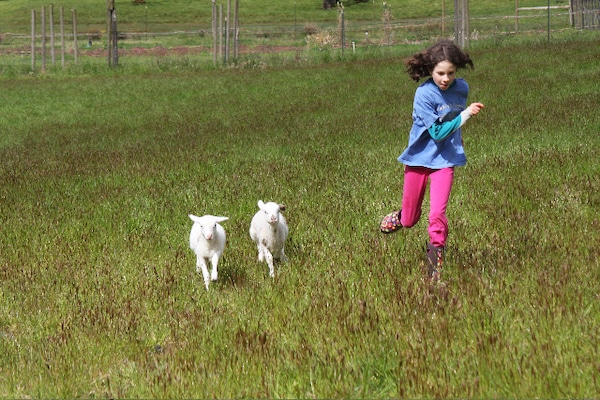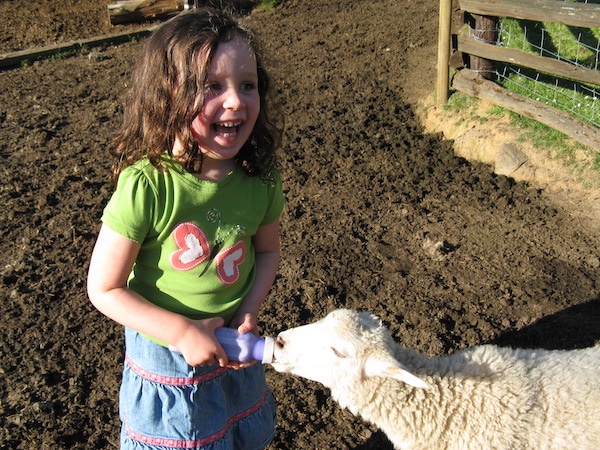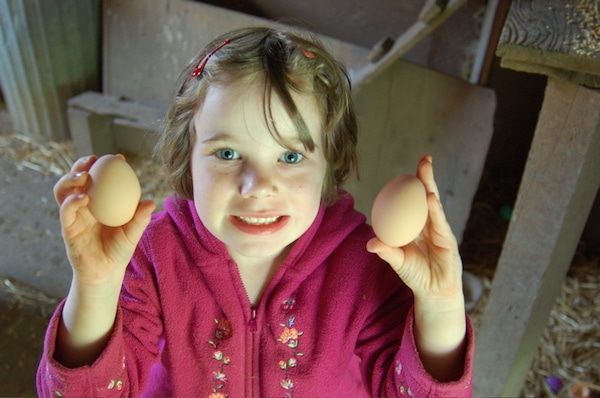Updated: November 11, 2020
While farm stays, a.k.a, vacationing on a farm, are common in Europe, they are less so in North America. But interest is growing here in the States due, in part, to the slow food and local food movements.
Still, for most vacationers here in the States, farm stays remain a new concept. And, planning for a farm stay is completely different from, for example, a week at Disney.
Vacationers need to get an idea of what they are getting into if they want to get the most out of their farm vacation.
For many Suburban Hobby Farmer readers a farm vacation is an interesting option because it combines the subject of growing food with a break from the hectic suburban lifestyle.
Let’s take a sec to get the legal words out of the way. This article may contain affiliate links. That means if you click and buy from my partners, I will make a tiny amount of money at no cost to you. This in no way affects my recommendations.

Like most things in life, preparation is key. To help you prepare, I’ve spoken with three farmers that offer farm stays: Christine Cole from Full House Farm, located in wine country just north of San Francisco; Beth Kennett from Liberty Hill Farm in Rochester Vermont; and Scottie Jones from Leaping Lamb Farm in Alsea Oregon.
Jones also runs the Farm Stay website, which provides a full-service listing of farm vacation offerings in the U.S. You can find your ideal farm stay farm on this site.
Here are some of the most important questions they suggested vacationers ask farm stay providers before making a selection.
Farm Stay FAQ
A farm stay is a vacation, usually for a non-farmer, where you live on a farm. You may participate in typical farming activities or not. Some are family focused and some are educational, but some are not. All farm stays are for the enjoyment of the vacationer.
Suburbanites are often unprepared clothing-wise for life on the farm. There’s a lot less pavement and much more muck. Open toed shoes are a no-no. Kennett at Liberty Hill makes the point that “Even a baby calf weighs enough to break a toe if you get stepped on.”
No. If you’re interested in organic, sustainable or chemical-free farming methods, you should ask if they do it, don’t assume. The same goes for a specific type of growing method. Keep in mind this subject can be touchy. Ask gently. Some farmers that aren’t organic, for example, can get a little defensive when asked. Some are organic but not certified so you should determine if certification is important to you before you talk to the farmer.
It seems obvious, but you should ask what will be available during your visit. Of course, sometimes a crop is in season, but it’s a bad year. So it won’t be there when you visit. There’s no way to be 100 percent certain before you get there.
Dogs and horses are sometimes allowed. But often they are not. You should ask.
Sometime children are allowed on a farm stay and sometimes not. You should ask.
Sometimes participating in chores is a free option and sometimes it costs extra. Often it’s not allowed. You should keep in mind that it’s almost always more trouble for the farmer than it is worth in extra labor and should be considered a privilege.
Some farmers suggest that you pick and cook your own. Cole at Full House Farm is amazed that, even after showing guests how to pick fresh vegetables, they will still travel to buy them from the grocery store during their stay. On the other hand, other farms may serve food bed and breakfast style. No picking or cooking allowed. Some even supply their own professional chef.
Farm stays often have dangers you might not expect. For example, are there big animals or is there deep water nearby? Families with children should be concerned with this issue.
Are you staying in the same house with the farm family or in a location detached from the house? Are you sharing a bathroom? Maybe it is even a tent with an outhouse? Options run the gamut. How much privacy do you need? What about mobile phone service, landlines, TV or WiFi? Cell towers are frequently out of range. Are these conveniences important to you?
Are there special educational opportunities like jam or bread making or special farm tours, for example, bee keeping. Often the farmer charges more for these opportunities.
Jones at Leaping Lamb Farm suggests that, for all of these questions, you should talk with the farmer who is actually working the farm – not someone removed from the operation.
This will give you the best sense of what to expect. You should keep in mind that many farmers are offering farm stays not because it was the plan, but because they need to make the farm viable.
They are not professional inn keepers or educators, although SOME are very good at these tasks.
1. Book Review: Felder Rushing’s Slow Gardening
2. Can Chickens Eat Weeds?
3. Selective Sloppiness in Your Backyard Garden
Suburban Hobby Farmer is a participant in the Amazon Services LLC Associates Program, an affiliate advertising program designed to provide a means for sites to earn advertising fees by advertising and linking to amazon.com.
Photos provided by Leaping Lamb Farm

